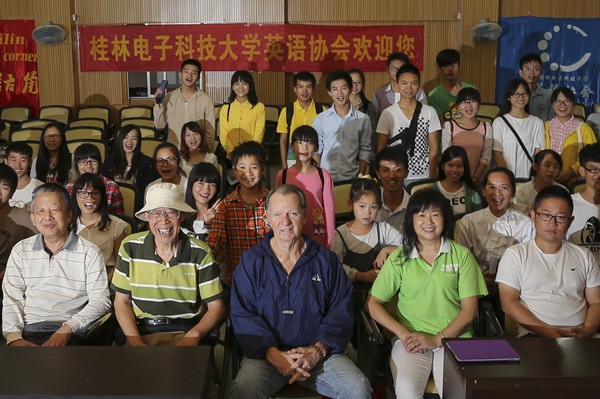Modern technologies such as smartphones and tablet computers may have contributed to the development of language learning in this day and age, but most people still prefer tried and tested means.
Such is the case of the traditional method of "English corners," which remain popular in some parts of China.
In Guilin, an English corner managed by Liu Yukin since 1991 still attracts a large number of Chinese and foreign students every week, with numbers estimated to be around 130,000 and 20,000, respectively. Age varies from 5 to 90, while foreign participants traveled from 45 countries.
"Founding the English corner was one of my tasks 24 years ago, but it's my heart that has told me to keep it going," Liu said.
Over the course of 24 years, Liu's venue for his English corner changed eight times. It is currently held at its home at the Ronghu Lake Library, where it's been for the past decade. Some of Liu's past students in the 1990s take their children to study in the English corner every Sunday.
"Liu is always the first person there," shared Chen Gan, who takes his son to the English corner. "It is easy to do one day of volunteer work, but it's difficult to do it for 24 years."
Liu, who retired from his job as a middle-school teacher at the age of 60, is proud of what his former students have become, some of which are employed in tourism, foreign affairs and international trade.
His guest book is filled with notes and messages from Chinese people and foreigners who took part in his program.
"When you do volunteer work for a long time, you receive rewards and have a strong sense of achievement. But were it not for the help from these friends, I wouldn't have done it for such a long time," Liu said.
"I'll appear at the English corner for as long as my physical strength permits me to do so," he added. "I don't want Guilin children today to have the same regrets as me when it comes to learning English," he said in an interview with China Daily.



























